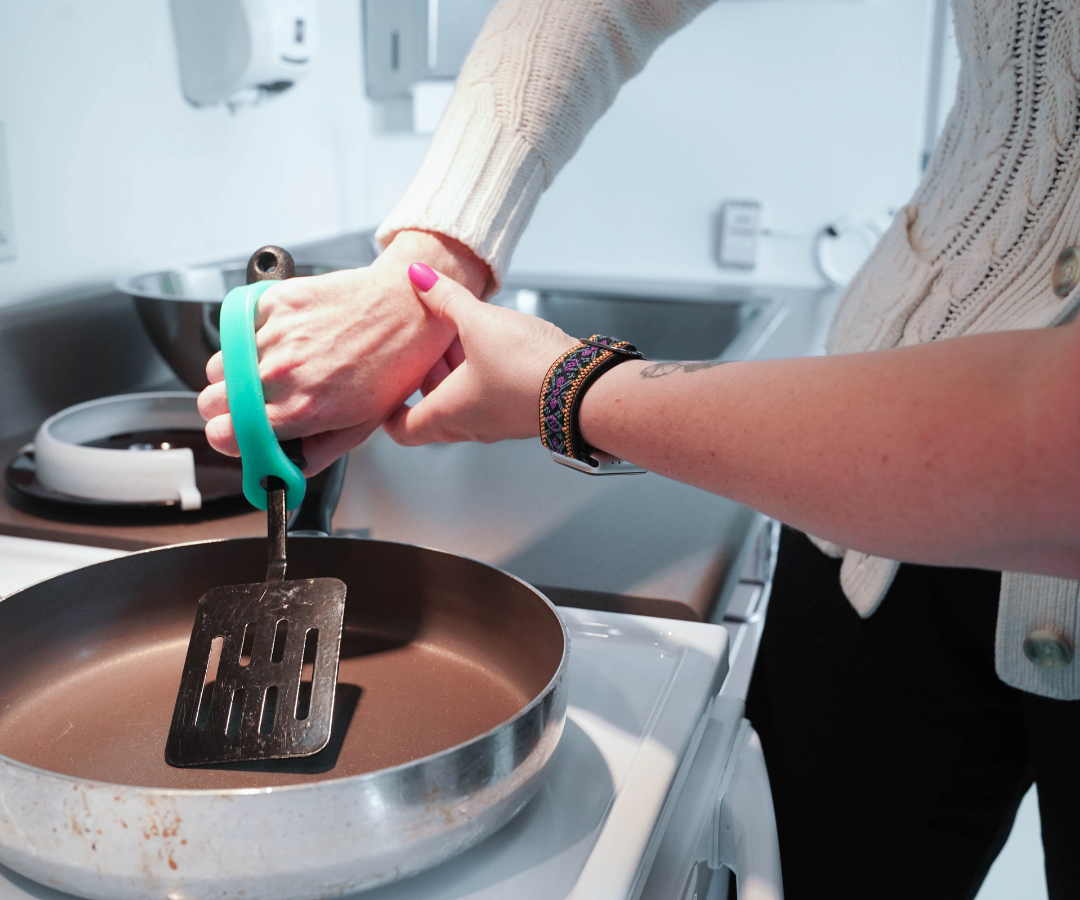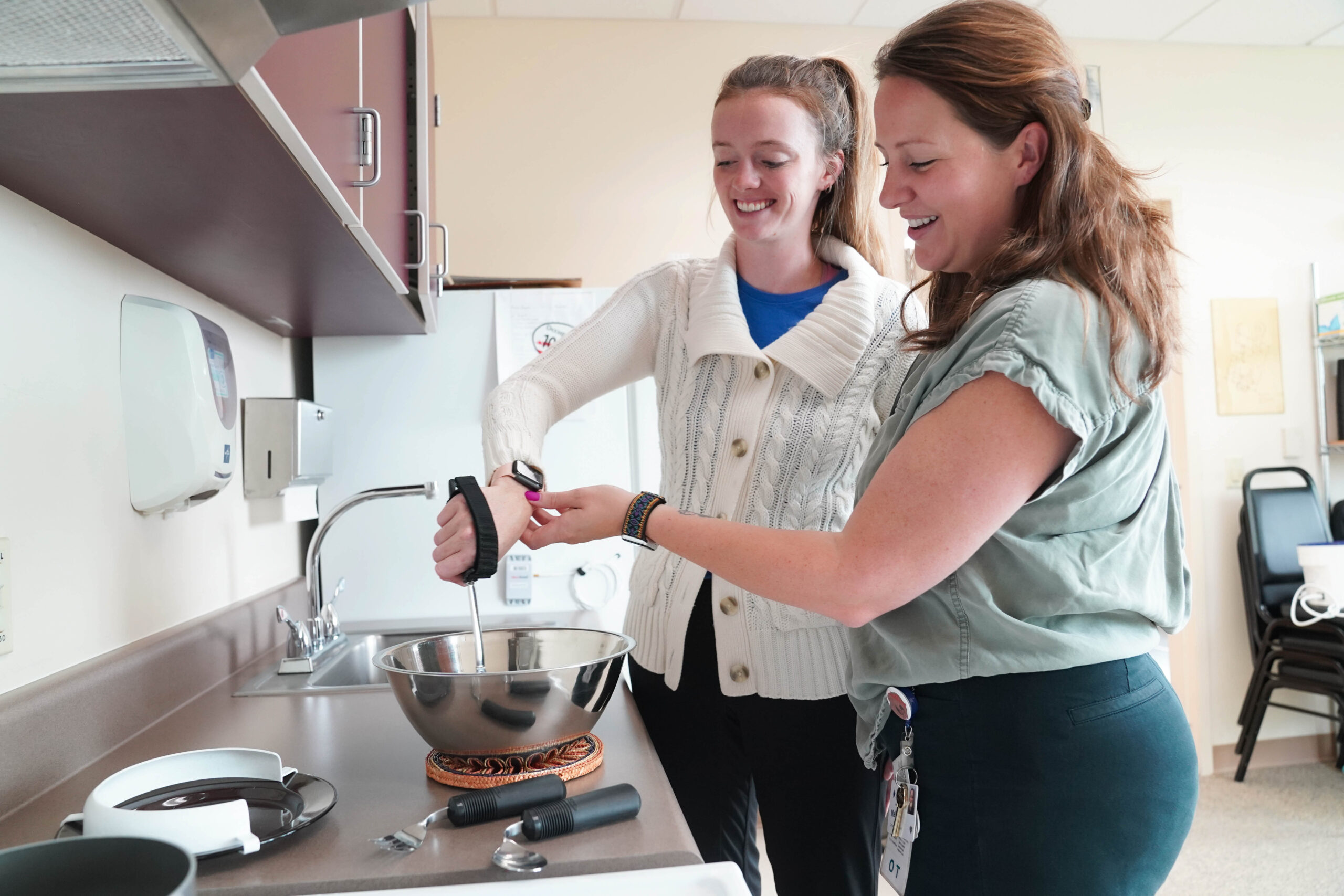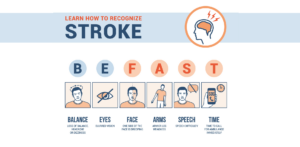Occupational therapists focus on helping patients do the things they want and need to do in their daily life. These providers help people of all ages with physical, sensory, or cognitive problems to promote patient independence. Occupational therapy helps with fine motor skills, visual-perceptual skills, thinking skills, and sensory processing problems (to name a few).
Occupational therapy intervention uses everyday life activities (occupations) to promote health, well-being, and the ability to participate in important activities. This includes any meaningful activity that a person wants to accomplish, including taking care of themself and their family, working, volunteering, going to school, among many others. Occupational therapists provide treatment that supports Activities of Daily Living, and Instrumental Activities of Daily Living.
Activities of Daily Living (ADLs)

Activities of daily living are everyday tasks that keep the body functioning like bathing, dressing, going to the bathroom, eating, and self-care.
Instrumental Activities of Daily Living (IADLs)
IADLs are complex activities that support independent living. They include
- Planning, shopping, and preparing meals
- Transportation, driving
- Managing finances
- Managing medications
- Housekeeping
- Caring for family, children, and pets
An occupational Therapist can provide specialized care such as
- Rehabilitation
- Hand therapy
- Vision therapy
- Lymphedema (buildup of lymph fluid)
- Pediatrics
- Neurologic rehab (concussions and strokes)
Occupation therapists may provide the following treatments for their patients based on their individual needs

- Adaptive equipment such as shower chairs or equipment to make daily tasks easier
- Caregiver and family training
- Techniques to improve a child’s ability to participate in everyday activities
- Returning to work, school, and leisure activities
- Techniques to aid memory, concentration, and executive functioning
- Fall prevention, home safety and accessibility
Occupational Therapy might be appropriate for patients who are recovering from injuries, living with chronic and life altering illness, those with developmental disabilities, and other conditions that may affect a patient’s independence.







